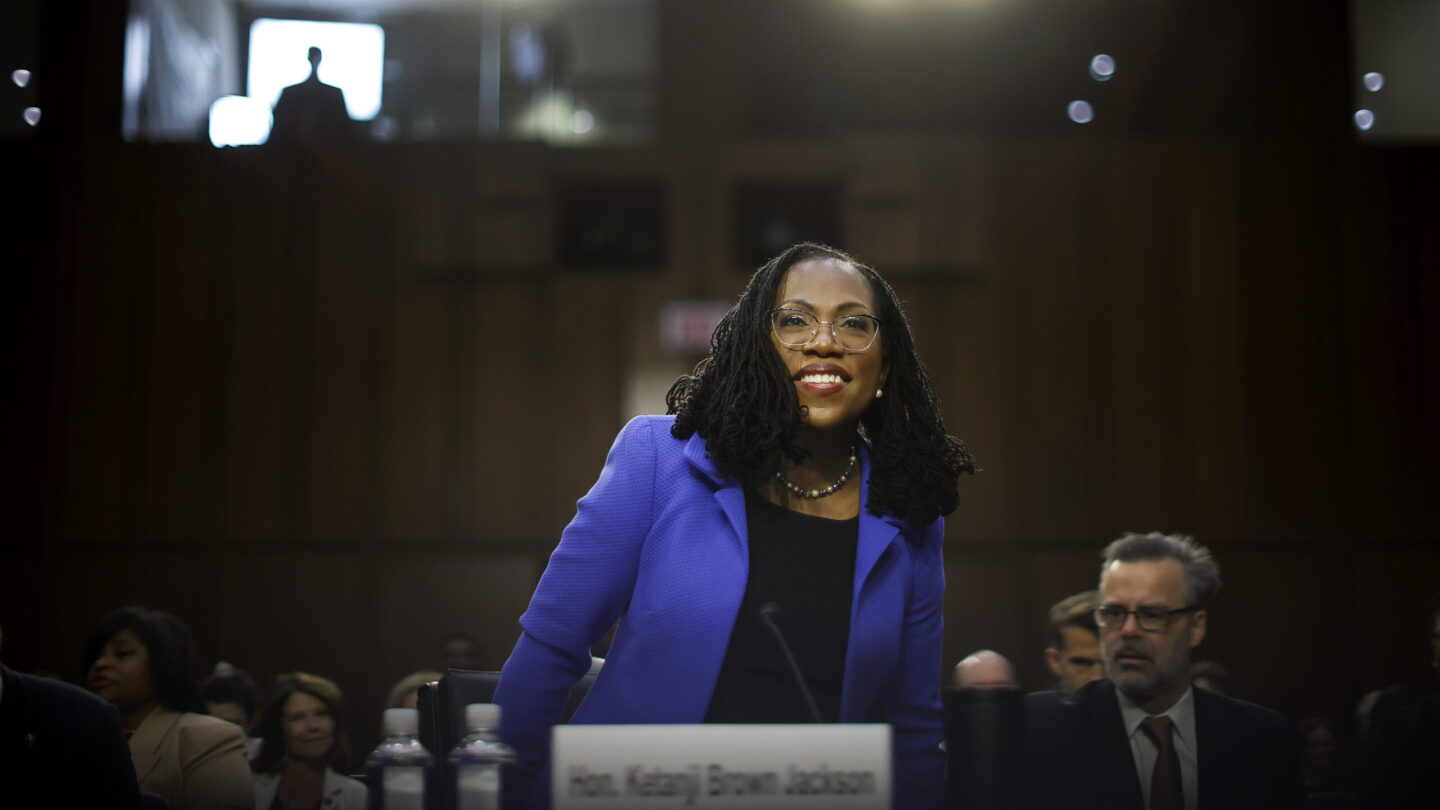Democrats on the Senate Judiciary Committee will vote Monday to advance the Supreme Court nomination of Judge Ketanji Brown Jackson, bringing President Biden’s nominee a step closer to a confirmation vote before the full Senate.
No Republicans on the committee are expected to vote to advance Jackson’s nomination, writing in a statement during her confirmation hearings that Jackson’s record “shows regular misuse of judicial authority to impose liberal preferences instead of what the law demands.”
The committee is made up of 11 Democrats and 11 Republicans but Jackson’s confirmation would advance to the full House even with an 11-11 deadlock.
Democrats on the committee cite Jackson’s judgment as reason for their support, writing that her “credentials, experience, and evenhanded approach to the administration of justice make her an outstanding nominee to the Supreme Court.”
Republicans may throw up procedural hurdles before the House votes, but they do not have the votes to block Jackson’s confirmation.
All 50 members of the Democratic caucus are expected to vote to confirm the nominee and one Republican, Susan Collins of Maine, said she would vote yes, so Jackson’s confirmation to the Supreme Court is all but confirmed.
Senate Majority Leader Chuck Schumer, D-N.Y., has said he hopes to hold a vote in the Senate before it begins its Easter recess on Friday.
Jackson, 51, served eight years as a federal trial court judge and last June was confirmed for a seat on the U.S. Court of Appeals for the District of Columbia. Prior to becoming a judge, Jackson worked as a public defender. If confirmed, she would be the first Supreme Court justice since Thurgood Marshall to have represented indigent criminal defendants.
Jackson will be the first Black woman to serve on the nation’s high court. Her confirmation would not change its ideological balance, a 6-3 conservative majority.
Jackson will join the court in the summer when Breyer retires.
Voters broadly support Jackson’s confirmation. A poll from Marquette University Law School after her confirmation hearings showed that 66 percent of adults saying they would support her nomination, while 34% wouldn’t.
Jackson was seen as at least “somewhat qualified” by 88 percent of the public while 12 percent see her as “not qualified,” the poll found.
That popularity is in contrast to recently confirmed Supreme Court justices. Amy Coney Barrett, the last nominee confirmed to the high court, was supported by roughly half of Americans prior to her confirmation in 2020, according to Gallup polling. Support for Brett Kavanaugh and Neil Gorsuch was in the mid-40s.
NPR’s Susan Davis contributed to this report.
Copyright 2022 NPR. To see more, visit https://www.npr.org.
9(MDAxODM0MDY4MDEyMTY4NDA3MzI3YjkzMw004))

9(MDAxODM0MDY4MDEyMTY4NDA3MzI3YjkzMw004))








